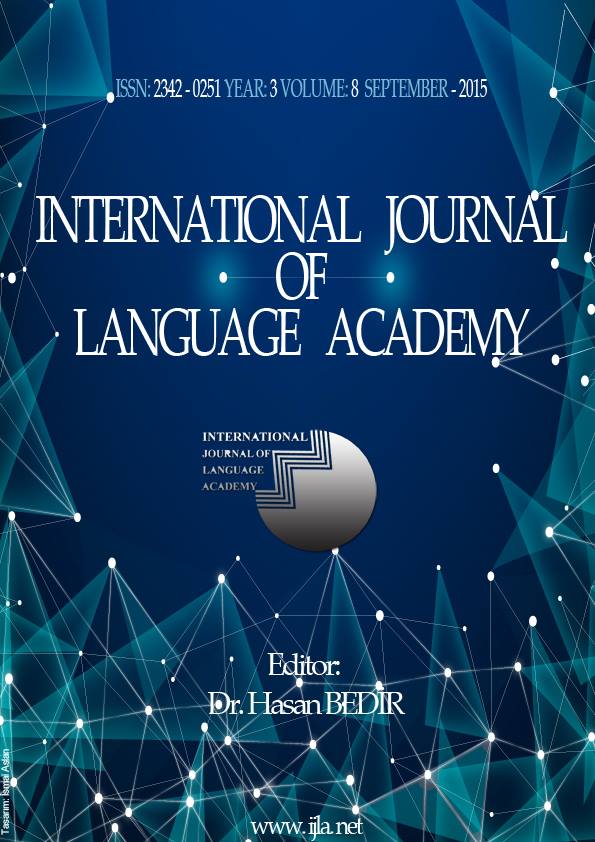Author :
Abstract
Bir metnin her bir yeni çevirisinin bir öncekinden kaçınılmaz olarak farklı olacağı kesindir. Hiçbir metnin çevirisinin bir öncekiyle aynı yorum, aynı amaç ve aynı okur kitlesi için gerçekleşmesi gerek yorum, gerek amaç, gerek sosyal ve tarihsel açıdan mümkün değildir. Bir metnin yeniden çevirisinde öncelikle çevirmenin yorumu açısından farklı bir anlama ve yorum sürecinin işletilmesinin yanında ilgili metnin belli bir dönemde toplumsal gelişmelerden kaynaklanan koşullardan doğan gereksinimler sonucunda yeniden çevrilmesi, çevirinin doğal bir olgusudur. Bazen yeni koşullar için yeni metinler yazmak yerine eski metinlerin yeni durumlara cevap verdiği görülmekte ve çevirmenler kaynak metinlere ya da özgün metinleri adeta o günün koşulları için yeniden yazmaktadırlar. Böylece çeviri metin tarihsel bir metin olmaktan çok o günün koşullarında çevirmenin kaynak metinden yola çıkarak canlı bir metin ürettiği süreç olarak gerçekleşebilir. Günümüz dünyasındaki yeni politik ve ekonomik gelişmeler uluslar ve toplumlar arasındaki politik ve ekonomik mücadeleler bir toplum içerisine var olan sosyal adaletsizlikler, ekonomik güç kavgaları toplumsal gerilimler komünist manifestonun yazıldığı günlerdeki sosyal gerilimlere benzer bir ortamı yeniden yaşattığı için bugünün dünyasında somut bir eleştiri metni yazmak kadar tarih boyunca tekrarlanan bu mücadelelerin bugün yeniden canlanması anlamına gelmektedir. Çeviri, kaynak metnin bir sonucu değil, kaynak metnin bugünün dünyasıyla yorumlanmasının bir sonucu olarak ortaya çıkmıştır. Komünist Manifestoyu yeniden çevirmedeki çeviri amacı, daha önce defalarca çevrilmiş olan metnin, iyi ya da kötü çevrilmiş olmasından kaynaklanmamaktadır. Komünist Manifesto için yeniden çevrilme süreci, metnin bugünün koşullarında yeniden yorumlanması anlamına gelmektedir.
Keywords
Abstract
It is certain that each new translation of a text would be different from a previous one. It is not socially, historically and hermeneutically possible for any kind of text to be translated with the same intent and interpretation and for the same readers as those in its previous translation. That a text can be retranslated either because the translator can interpret and understand it differently or the text can be retranslated as a result of the social developments is a natural fact of translation. It is seen that sometimes emerging needs can be met with old texts instead of forming new texts; therefore translators almost rewrite the source or original texts for these emerging conditions. Thus rather than being a historical text, a translated text can be a process in which translator forms a living text based on the source text under emerging conditions. Writing a concrete critics in today’s world means revitalization of recurring struggles as today’s new political and economic developments, political and economic struggles among nations and societies, social inequalities within a nation, and social tensions cause a situation which is more or less similar to that of the time when the Communist Manifesto was written. Translation came into being not as a result of the source text but its interpretation with today’s world conditions. The intention behind retranslating the Communist Manifesto doesn’t have anything to do with whether its many previous translations are good or not. In fact, retranslation process for the Communist Manifesto means reinterpretation of the text under today’s conditions.
Keywords
- Arı, S. (2014).Çeviri Sosyolojisi. İstanbul: Aylak Adam Kültür Sanat Yayıncılık.
- Bourdieu, P. (1993). Sozialer Sinn: Kritik der theoretischen Vernunft. Frankfurt am Main: Suhrkamp.
- Bourdieu, P. (2001). Die Regeln der Kunst, Frankfurt am Main: Suhrkamp.
- Eco, U. (1996). Anlatı ormanlarında altı gezinti.(Çev. Kemal Atakay). İstanbul: Can Yayınları, 3. Baskı.
- Gadamer, H.-G. (1993). Hermeneutik: Wahrheit und Methode. Ergänzungen, Register. 2. MohrSiebeck.
- Hünler, H. (1998). Estetik’in kısa tarihi. modern kültür ve sanat üzerine felsefi bir tartışma. İstanbul: Paradigma Yayınları.
- Stolze, R. (2011).Übersetzungstheorien. Eine Einführung. Narr Verlag.
- Venuti, L. (2008). The Translator’s Invisibility. A history of translation. Routledge.





